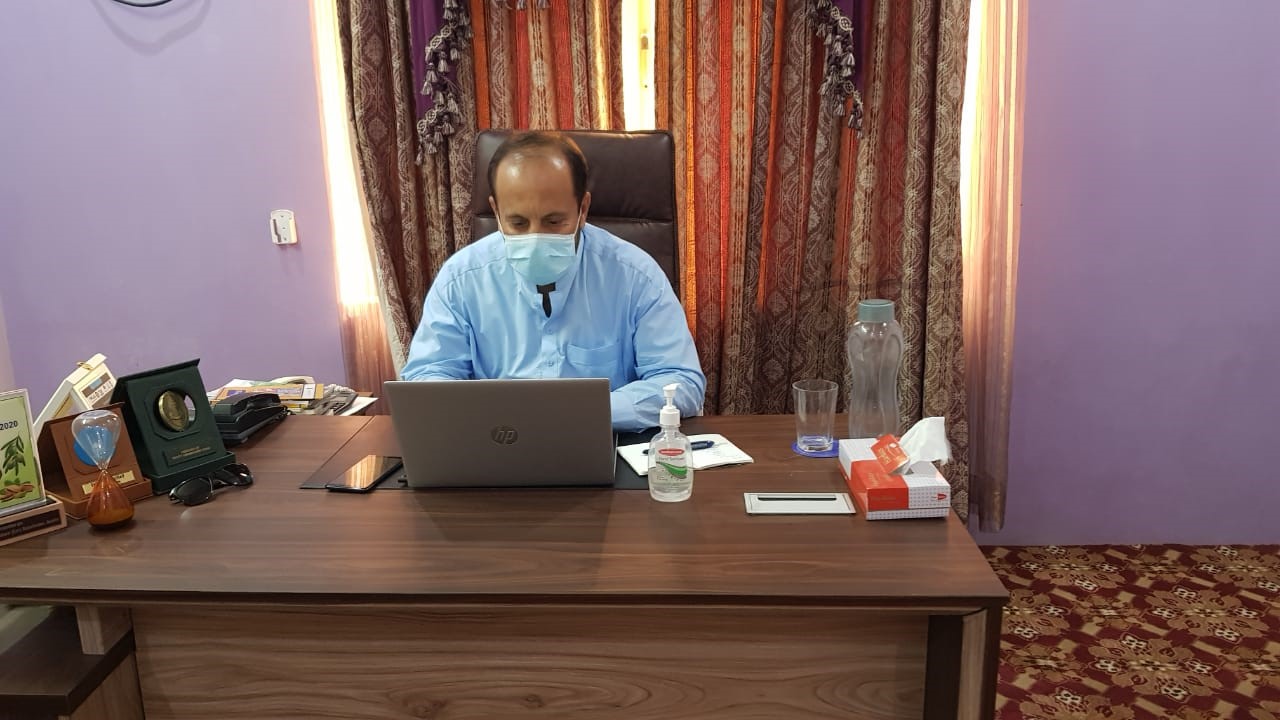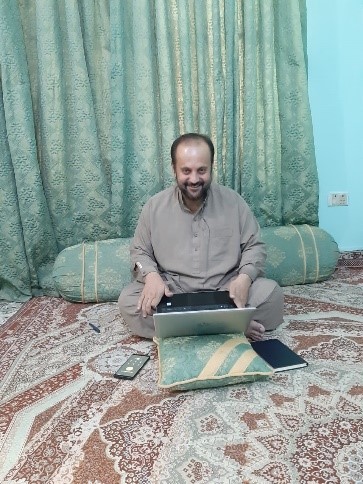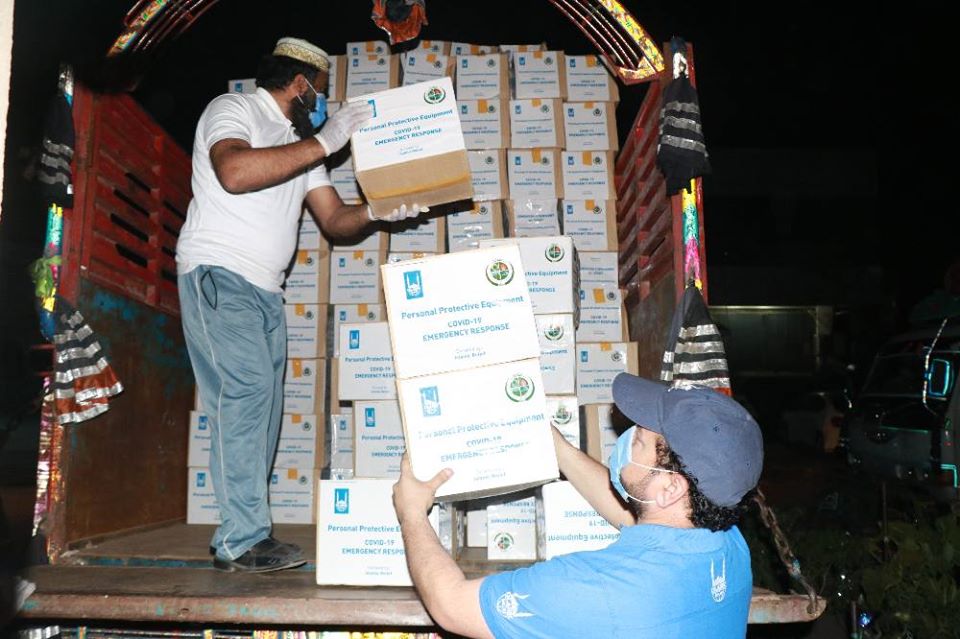This World Humanitarian Day highlights the humanitarian heroes putting themselves on the Covid-19 frontline to help vulnerable people. Here Islamic Relief’s Essa Tahir reflects on the challenges and risks he and his team face as they continue delivering vital aid in Balochistan.

When news of the coronavirus outbreak in China started filtering through in December, I never imagined it would turn into a global pandemic – and that it would happen so fast.
By February the severity of the situation was painfully apparent as Iran was engulfed by the disease and huge numbers of pilgrims were returning home via Chagai, Balochistan.
The authorities quickly set up a camp and quarantine centre in the border city of Chagai and started quarantining suspected patients. Schools in the district were shut down, which for my family meant disappointment and uncertainty as both of my sons had nearly half of their scheduled exams cancelled.
At the same time the government also decided to ban all public gatherings and impose a lockdown, including the closing of public transport.
Missing my family
We sent my sons back to our hometown where we felt they would be safer. They’d never been away from us before and we missed them a lot. I had to regularly contact my father, a very social man who never misses a social gathering, to remind him to stay at home.
But with my sons away I could better focus on the emerging challenges that Islamic Relief was facing as Covid-19 spread rapidly throughout Pakistan.
Islamic Relief made the very difficult decision to suspend our operations in the country, including our much needed winter survival project. We staff were devastated, worried about all the people who needed Islamic Relief’s help. I wanted Islamic Relief to deliver the support vulnerable people need so desperately, and I wanted to keep everyone safe from the virus. It was hard to see how we could do both.
My colleagues and I started working from home, which was a real challenge as all our operations are community oriented and it is impossible to carry out fieldwork from home. Some donors suspended funding for key projects in Balochistan.
We didn’t want to let anyone down, especially the vulnerable people relying on us.
It also meant that, for the first time in my career, I had to travel and interact with communities in a very restricted way. It was mandatory for Islamic Relief staff and those with whom we were interacting to wear masks and gloves and observe social distancing at all times. As well as the relatively minor issue of making us often hot and uncomfortable, this posed a big challenge because first we had to educate communities about the deadly virus and its consequences.

I was acutely aware that testing for the virus was very limited in Balochistan, and my team and I were at risk of getting infected. What if I brought the virus home? If me or my wife got sick? I couldn’t help but consider the possibilities because while we did everything we could to make our operations as safe as possible, there was no way to totally eradicate the risk.
Delivering aid despite the risk
With our safer operating arrangements in place, we were able to deliver our winter emergency project. We went door to door, taking cheques to over 1,300 homes so families that had lost their livelihoods to the lockdown could buy food and pay for other essentials.
We conducted more than 250 sessions teaching communities about good hygiene practices. This meant limiting the numbers of people attending sessions and requiring everyone to wear a mask, gloves, and maintain social distance. Some people didn’t do as we asked, which was worrying. But we were motivated by the chance to provide families facing desperate times with a ray of hope.

I am proud that Islamic Relief has remained a lifeline for those in need, many of whom are facing greater suffering as a result of the pandemic. I am thankful Alhamdulillah that none of my colleagues have contracted Covid-19.
And I am encouraged that Islamic Relief has recently secured a long-term development project in Balochistan. This global health crisis has left so many people around the world in need, and already scarce humanitarian funding is now harder than ever to secure.
But this investment in building brighter futures here in Pakistan will further fan the flames of hope, and I am thankful to those that are supporting it.
Unity and collaboration is key
While Covid-19 has kept people apart physically, I see that in many respects the pandemic is driving greater unity. Communities are coming together to help their most vulnerable, donors are supporting humanitarian programmes where they are needed most, countries are collaborating to develop a cure.
So this World Humanitarian Day I urge the world to continue working together to respond to humanitarian crises, to keep sharing compassion, love and support with people in need.
During the Covid-19 pandemic, Islamic Relief continues to be a lifeline for vulnerable people around the world. Support our work: donate to our Coronavirus Appeal now.










